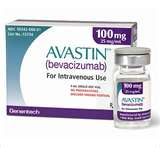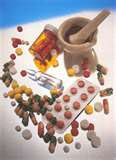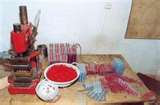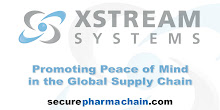
Man to be sentenced for trafficking in bogus erectile dysfunction drugs that were purchased on-line.
Robert Patrick in the St. Louis Post Dispatch reports about a St. Louis County man who has pleaded guilty to federal charges and admitted to selling thousands of counterfeit erectile dysfunction pills over the last several years.
According to the St. Louis Post Dispatch story:
• Mark Hughes, 47, ordered counterfeit versions of the drugs Viagra and Cialis online from China and India, and sold them either in an illegal and unlicensed pharmacy or via word of mouth, Assistant U.S. Attorney John Bodenhausen said in court.
• Hughes' last shipment, of 1,000 pills, was intercepted by U.S. Customs and Border Protection in 2009 and delivered by investigators. Hughes house was then searched and he admitted buying roughly 11,000 pills. He sold them for $5 each, roughly one-third of the wholesale price, Bodenhausen said.
• Bodenhausen said that the pills either did not contain the correct drug or contained a less potent dose of the drug.
• In court, Hughes pleaded guilty to trafficking in counterfeit goods and misbranding a drug, and could face at least two years in prison under federal sentencing guidelines when sentenced in January, depending on a number of factors.
This is an excellent cautionary tale regarding those who set out to scam people by buying bogus goods online.
Mr. Hughes is fortunate that the bogus drugs that he sold did not adversely effect the health or kill someone or he would be facing a far more serious consequences.
Bogus drugs are becoming one of the more significant health care issues of the 21st century. 11,000 doses of a potentially lethal, fraudulent or adulterated drug could poison and create a huge health care disaster within a communities population.
Robert Patrick in the St. Louis Post Dispatch reports about a St. Louis County man who has pleaded guilty to federal charges and admitted to selling thousands of counterfeit erectile dysfunction pills over the last several years.
According to the St. Louis Post Dispatch story:
• Mark Hughes, 47, ordered counterfeit versions of the drugs Viagra and Cialis online from China and India, and sold them either in an illegal and unlicensed pharmacy or via word of mouth, Assistant U.S. Attorney John Bodenhausen said in court.
• Hughes' last shipment, of 1,000 pills, was intercepted by U.S. Customs and Border Protection in 2009 and delivered by investigators. Hughes house was then searched and he admitted buying roughly 11,000 pills. He sold them for $5 each, roughly one-third of the wholesale price, Bodenhausen said.
• Bodenhausen said that the pills either did not contain the correct drug or contained a less potent dose of the drug.
• In court, Hughes pleaded guilty to trafficking in counterfeit goods and misbranding a drug, and could face at least two years in prison under federal sentencing guidelines when sentenced in January, depending on a number of factors.
This is an excellent cautionary tale regarding those who set out to scam people by buying bogus goods online.
Mr. Hughes is fortunate that the bogus drugs that he sold did not adversely effect the health or kill someone or he would be facing a far more serious consequences.
Bogus drugs are becoming one of the more significant health care issues of the 21st century. 11,000 doses of a potentially lethal, fraudulent or adulterated drug could poison and create a huge health care disaster within a communities population.
Kudos to U.S. Customs and Border Protection for intercepting these bogus medications.
To read the entire story, visit: http://www.stltoday.com/news/local/article_0ac42318-dad5-11df-a1ce-0017a4a78c22.html
To learn about pharmaceutical anti-counterfeit solutions, visit: http://www.xstreamsystems.net/.





























